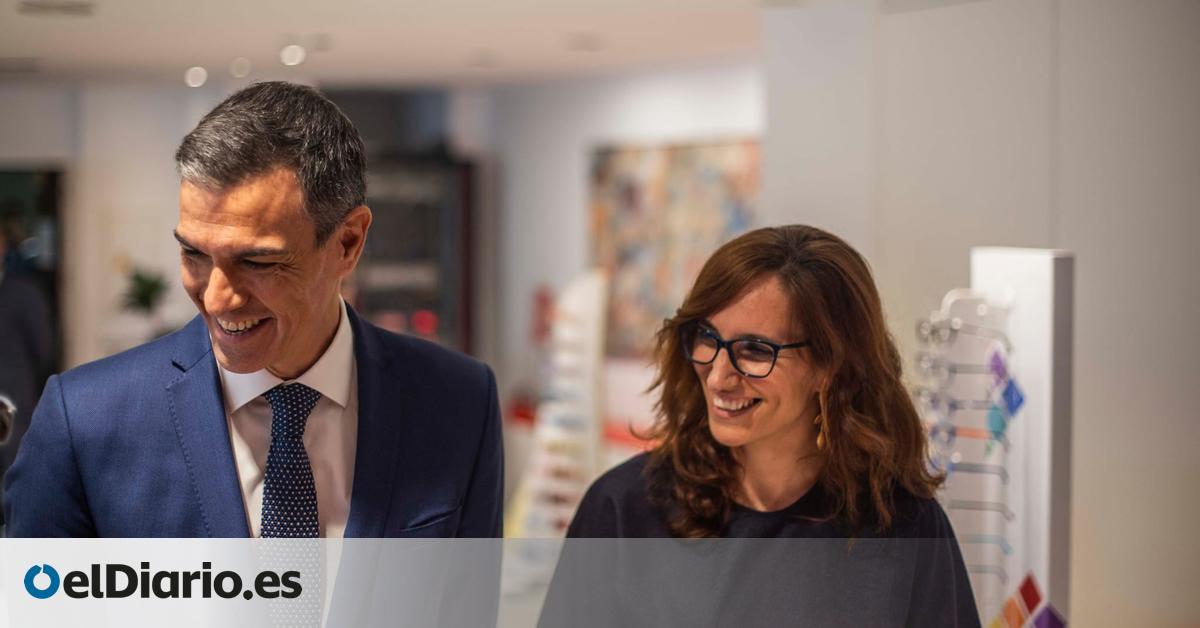
The President of the Government, Pedro Sánchez, has announced that the Executive will finance the glasses and slows to those under 16 years from the next school year. The measure, which will cost 48 million euros, will be included in a royal decree that has begun on Monday its processing.
The program marks a cap of 100 euros per beneficiary that will be managed in the form of direct aid through the College of Optics and Optometrists, an entity to which the budget dedicated to this measure will be transferred. Families can discount that amount from the invoice of the products acquired in the optical centers. “That a boy or girl sees the slate of her school cannot depend on her family’s pocket,” said Sánchez.
The Minister of Health, Mónica García, now announced a year ago that the glasses and lenses would be financed to children and adolescents with fewer resources from 2025. It was the measure that contemplated the government agreement between PSOE and add: “A specific program of direct aid for the purchase of glasses and slows under 18 years for families with less resources.” However, finally the bet has been more ambitious and the incorporation of this visual health benefit will be universal, that is, not limited by rent. “Visual health has to be universal and when we break unnecessary procedures and break the stigma,” said Garcia, who has congratulated himself on the inauguration of a “new right in Spain to see well.”
The demand also comes from the Congress of Deputies. The lower house unanimously approved at the beginning of April a proposal of law to guarantee the free glasses for children and adolescents. The initiative arrived in Madrid from Adelante Andalucía prior to unanimous support in the Andalusian Parliament.
720,000 boys and girls, 8% of the total, suffer visual poverty, that is, they have problems to face the expense of the purchase of glasses or lenses, according to a report published last October by the Vision and Life Association. “There are many people and impacts problems on studies and difficulties in prospering in life,” said the president of the Government, which has also assured that “30% of cases of school abandonment are related to vision alterations.”
“Visual poverty is a very sad term and would lead us to produce an inequality in the development of people from their childhood that soon or earlier would induce a handicap Social unacceptable, ”said Juan Carlos Martínez Moral, president of the College of Optics and Optometrists. A study by the 2021 World Health Organization accredited that the dentist, glasses or headphones – service and health products that are out of public coverage – caused“ catastrophic expenses ”in some 150,000 Spanish families to which this investment left them in the threshold poverty.
30% of mine children in 2030
Childhood vision problems are increasingly frequent. Spain is not one of the countries with the most affectation – in Asia, the figures frisa 80% – but it is estimated that 19%of children between five and seven years of age had myopia in 2024. The forecasts for 2030 is that the percentage rises to 30%, according to an estimate conducted by two researchers from the Complutense University of Madrid, Miguel Ángel Sánchez Tena and Cristina Álvarez. Other estimates place that two out of five teenagers need glasses.
A meta -analysis recently published by the magazine British Journal of Ophthalmology It offers a global discouraging climbing perspective of these ailments: if in the last decade of the nineties the percentage of children and adolescents with this condition of the view was around 24%; In 2023 the figure had climbed up to 36%. The specialists are amazed at this increase and have stopped linking them only with genetic factors.
“This increase in prevalence cannot be explained that the genetic factors have changed both. There are other factors: children spend less time outdoors, more at home and at school, and are constantly exposed to the use of electronic devices, to study and play. It is studying a lot, but there is heterogeneity in the results,” said Pilar Merino, president of the Spanish Society of Stribology and Pediatric Ophthalmology (SEEOP), to this medium a few months ago.
Source: www.eldiario.es

